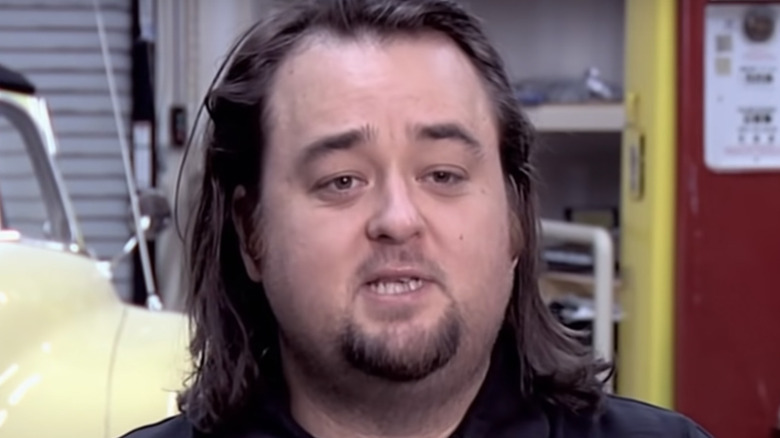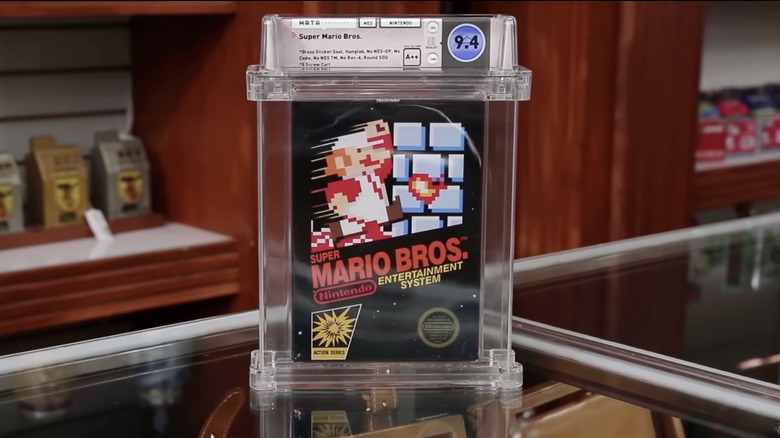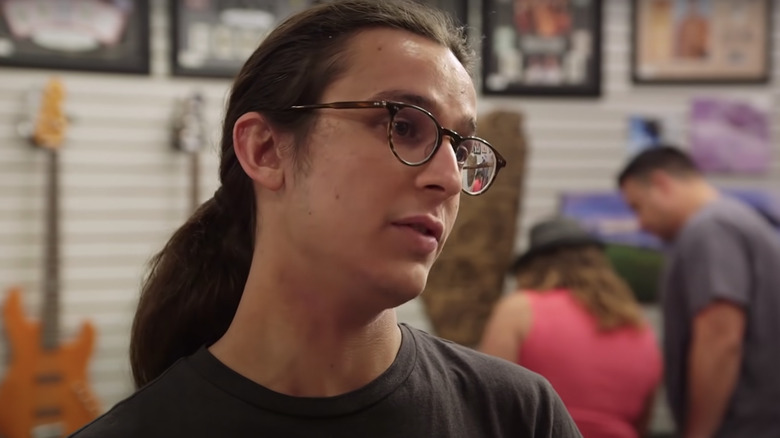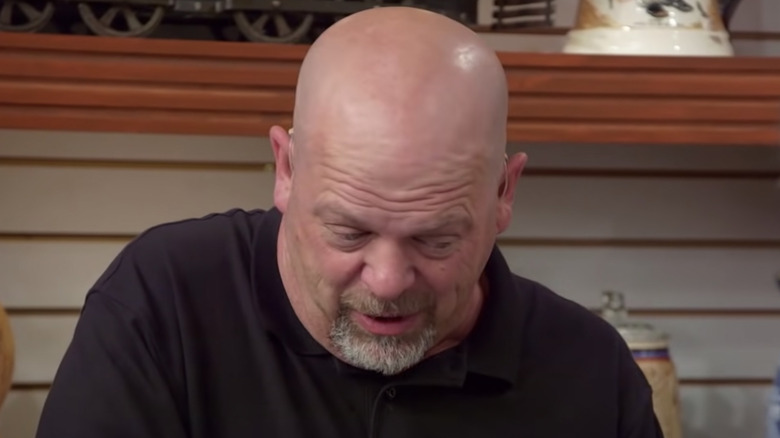This Video Game That Was Denied On Pawn Stars Sold For $2 Million
Big things come in small ... cartridges. Okay, so maybe that's not exactly how the classic idiom goes, but it is the lesson that Rick Harrison comes to learn on the Season 17 episode "Pawn v. Ferrari" of History's "Pawn Stars." With a calm, "I have this to offer you," a seller gently rests a clear plastic box on the counter of the World Famous Gold & Silver Pawn Shop, its contents being the "earliest sticker-sealed Super Mario Bros. Nintendo game." The game was manufactured in 1985 for Nintendo's first home video game console to hit the American market, the Nintendo Entertainment System (which was also introduced to the U.S. in 1985 — via Wired). Besides just being sealed — a feat in and of itself — the game is in great condition, and you just can't deny the appeal of an 8-bit "Mario."
Rick's immediate response is one of cautious excitement. He tells the seller that he knows video games are becoming a more popular and lucrative niche of the collectibles market, but confesses that it's not a trade he has much experience with. Rick even calls Chumlee over to see if he knows anything about old video games, which — perhaps unsurprisingly — proves equally unhelpful. Unbeknownst to these two pawnbrokers in foreign territory, they've got an item before them that's worth more than most people make in a lifetime.
Rick Harrison is astonished at the asking price for the Super Mario Bros. video game
After some significant time spent admiring the quality of the sealed "Super Mario Bros." video game, Rick Harrison cuts to the chase and asks the seller how much he wants for it. The seller coolly replies, "It's a piece of history; it's something that's hard for me to part with. But I would sell it for a million dollars." Rick repeats the figure back to the seller just to make sure he heard it right, and there's no doubt he's serious. A long silence follows this absolute blockbuster of a price — that is, until Chum breaks it by calling out what's on everybody's mind: "That's a lot of money for a video game."
Rather than throwing the seller out for wasting his time, though, Rick decides to call up the company Wata, which grades the quality of old video games, to see if they can have somebody come down to the shop to determine whether the seller's asking price is appropriately high or just downright greedy. Before long, the founder and president of Wata, Deniz Kahn, himself walks through the doors of the shop to offer his expertise. He immediately recognizes the game as "probably the most significant piece of video game history that's ever passed through our grading company."
The game is old and in great condition, and its rarity and value is extremely high because it is from the test market batch of around 10,000 games that Nintendo produced only from 1985 to 1986 when it was first trying to introduce its NES console to the American market. This can be determined by the fact that the game is sealed by a sticker, not shrinkwrap. Of those 10,000 or so games, only one — this one — remains sealed.
So what's it worth?
After Deniz Kahn teaches Rick all about the "Super Mario Bros." video game, Rick asks him how much it would go for. This is the first question Kahn can't answer directly. While this game, in particular, is of undeniable quality and importance to video game history, he says he knows of $300,000 offers for it that have been turned down. But he also assures Rick that "there's no ceiling" for how high these games could sell for — it's a high-risk, high-reward situation – and with all those contradictions, warnings, and encouragements on the table, he says his goodbyes, leaving Rick to make his own decision.
As is customary for the pawnbrokers at the World Famous Gold & Silver Pawn Shop, Rick tries to get out of countering the seller's million-dollar offer and asks him to name a new, "realistic" price. But the seller holds fast, replying that it would take $1 million for him to give up his beloved piece of video game history. Rick is gobsmacked, and he confesses that although he's interested in entering into the collectible video game market, he won't be doing that with a $1 million purchase. The seller understands and is happy to walk away from the shop with his ultra-valuable "Super Mario Bros." game still in hand.
The story doesn't end there
The "Pawn Stars" episode "Pawn v. Ferrari" first aired on November 18, 2019 (via History), so this all went down sometime earlier that year. Little did anyone present — the seller included — know that in just two years' time, a similar game would sell for double what this seller wanted to get for his.
According to ComicBook.com, another sealed "Super Mario Bros." NES game sold in August 2021 for a whopping $2 million on the auction website Rally. Rally works by purchasing collectibles, turning them into "companies" so that they can be invested in as real firms are, and then having investors buy equity shares in these "companies" until a buyer offers to purchase the collectible outright with 100% of the shares. The investors then vote to decide whether or not to give up their investment and profit off the sale. The New York Times reports that Rally had originally purchased the game for $140,000 in April 2020, and in just over one year, the game had appreciated in value to the point that a single anonymous buyer bought out the game's investors with $2 million.
This $2 million sealed "Super Mario Bros." video game is not exactly the same as the one that appeared on "Pawn Stars," though. Remember the term "test market"? Well, this game wasn't part of that batch, meaning the one to appear on "Pawn Stars" is an earlier version with slightly different, rarer packaging — thus making it worth even more than the non-test version that just sold. Although Rick's decision to not buy the sealed "Super Mario Bros." game surely doesn't rank among the most scandalous things to ever happen in his shop's history, we're sure that the usually-savvy pawnbroker is kicking himself now for his cautious approach to entering the video game collectibles market.



